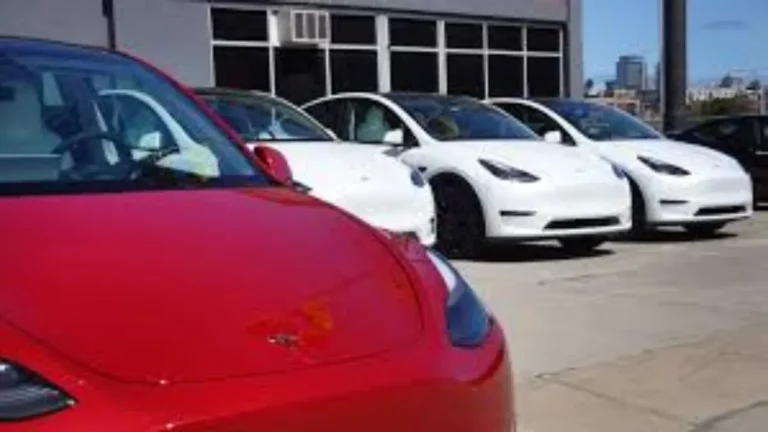Introduction
Allison morrow anti tesla Stance is in the news. In a world increasingly driven by electric vehicles, Tesla stands at the forefront of innovation. With a charismatic leader and groundbreaking technology, the company has captivated the public. However, not everyone views Tesla through rose-colored glasses. Allison Morrow, a prominent critic, challenges the dominant narrative surrounding the electric car giant. Her views on Tesla’s environmental impact, business practices, and societal influence offer a refreshing counterpoint to the widespread enthusiasm. In this article, we explore Morrow’s perspectives and the broader implications of her critiques.
Allison Morrow: A Voice against the Current
Allison Morrow anti Tesla stance, while many praise Tesla for its innovation, Morrow remains skeptical of the company’s practices. She believes the hype surrounding Tesla overshadows critical issues that demand attention. Morrow’s background in environmental studies and sustainable development provides her with a unique perspective. She argues that the company’s image as a green pioneer is misleading and oversimplified. Morrow’s critiques often focus on the ethical and environmental consequences of Tesla’s business model. Her arguments encourage a deeper examination of the company’s true impact.
The Myth of Tesla’s Environmental Impact
Tesla has built its brand on the promise of a cleaner, greener future. However, Morrow disputes the idea that Tesla’s electric vehicles are truly sustainable. She points out the environmental costs associated with the production of lithium-ion batteries, which power Tesla’s cars. The mining and manufacturing processes for these batteries are resource-intensive and have significant environmental footprints. Moreover, Morrow highlights the issue of battery disposal, which poses long-term ecological challenges. She believes that the narrative of Tesla as an eco-friendly company ignores these underlying problems. Morrow urges consumers to consider the full lifecycle of Tesla’s products before labeling them as green.
The Reality Behind Tesla’s Business Practices
Beyond environmental concerns, Morrow also criticizes Tesla’s business practices. She argues that the company’s rapid expansion has come at a significant cost to its workforce. Reports of long hours, high pressure, and challenging working conditions at Tesla’s factories have surfaced. Morrow contends that these issues reflect a broader problem within the tech industry, where the pursuit of innovation often comes at the expense of workers’ well-being. Additionally, she questions Tesla’s approach to innovation, which she believes prioritizes speed over sustainability. Morrow warns that this relentless pursuit of growth may lead to unforeseen consequences, both for the company and society.
Challenging the Cult of Personality around Elon Musk
A significant part of Tesla’s appeal lies in its enigmatic CEO, Elon Musk. His vision, charisma, and audacity have garnered a devoted following. However, Morrow challenges the cult of personality that surrounds Musk. She argues that the focus on Musk’s persona detracts from critical discussions about the company’s practices. Morrow believes that the media often amplifies Musk’s achievements while downplaying or ignoring his failures. She warns that this selective narrative creates a distorted view of Tesla’s success. Morrow encourages a more balanced analysis of Musk’s leadership, one that considers both the successes and shortcomings of his tenure.
The Societal Impact of Tesla’s Rise
Tesla’s influence extends beyond the automotive industry, shaping societal attitudes towards technology and progress. Morrow raises concerns about the broader implications of Tesla’s dominance. She argues that the company’s success has reinforced the idea that technological innovation is the primary solution to environmental and social challenges. This mindset, according to Morrow, overlooks the importance of systemic change and collective action. She believes that the focus on individual consumer choices, such as buying an electric car, detracts from the need for larger-scale reforms. Morrow calls for a shift in perspective, one that prioritizes systemic solutions over technological fixes.
The Future of Tesla: A Balanced Perspective
Allison Morrow Anti Tesla offers a necessary counterbalance to the overwhelmingly positive narrative surrounding Tesla. While acknowledging the company’s contributions to the electric vehicle industry, she emphasizes the importance of a critical examination. Morrow believes that a more nuanced understanding of Tesla’s impact is crucial as the company continues to grow. She advocates for a future where innovation is guided by ethical considerations and sustainability. Morrow’s insights serve as a reminder that progress should not come at the expense of environmental or social well-being. By challenging the status quo, she encourages a more thoughtful approach to the future of technology.
Conclusion
Allison Morrow Anti Tesla invites us to reconsider our assumptions about the company and its impact. While Tesla has undoubtedly revolutionized the automotive industry, Morrow’s insights reveal the complexities beneath the surface. Her emphasis on environmental sustainability, ethical business practices, and the need for systemic change offers a refreshing perspective. As Tesla continues to shape the future of transportation, Morrow’s voice reminds us of the importance of critical thinking. By engaging with her critiques, we can better understand the broader implications of Tesla’s rise and strive for a future that balances innovation with responsibility.

